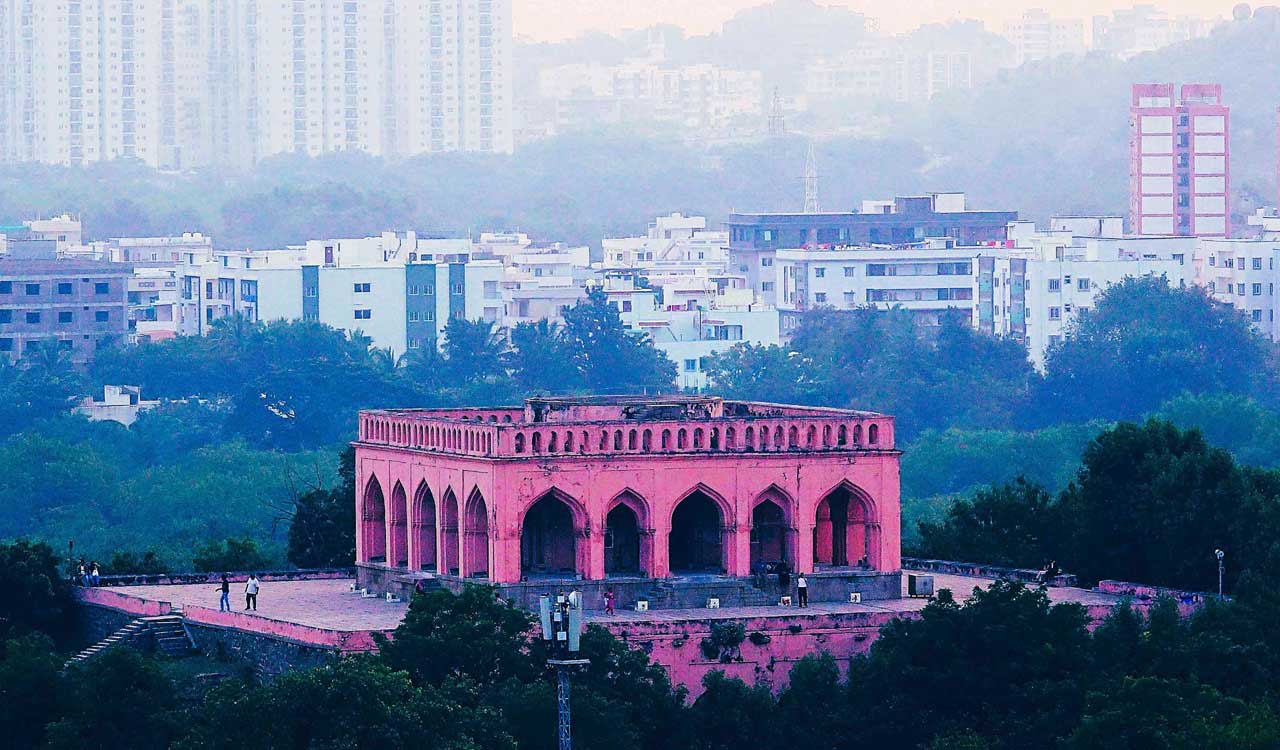Legendary courtesans of Golconda: Taramati, Premamati’s legacy remains unforgettable

The stories of Taramati’s and Premamati’s ethereal dual performances impressed and mesmerized the Sultan from afar. It’s said that the ravishing Taramati sang from her open-air pavilion—the Taramati Baradari
(By N. Shiva Kumar)
Taramati and Premamati, the legendary courtesans of the Golconda Sultanate, graced the Deccan with their beauty, artistry, and unwavering loyalty.
In the 17th century, under Sultan Abdullah Qutb Shah, the court at Golconda thrived with culture, song, and dance, becoming a colourful canvas for these remarkable women.
Taramati and Premamati were more than courtesans; they were artists whose skills in music and dance resonated across the kingdom, capturing the admiration of 7 th Sultan of the dynasty, and leaving an indelible mark on history. The sultan was apparently a polyglot and a lover of music, poetry and cultural aspects.
The stories of Taramati’s and Premamati’s ethereal dual performances impressed and mesmerized the Sultan from afar. It’s said that the ravishing Taramati sang from her open-air pavilion—the Taramati Baradari.
Built with twelve acoustically designed archways to carry her voice across the winds to the fort where the Sultan listened in quiet rapture.
This lonesome Baradari still stands atop a hillock, an echo of her legacy, perched on the landscape of Hyderabad skirted by the river Musi.
Similarly, the magnificent solid stone structure of Premamati-Mosque was dedicated to Premamati another singer- dancer and also a favourite of the Sultan.
The mosque also remains intact in the neighbouring hillock with captivating carvings on the outer wall by the master masonry craftsman from the Vijayanagar kingdom.
What made Taramati and Premamati unforgettable wasn’t just their beauty or artistry but their fierce loyalty. Their bond with the Sultan and with each other became legendary, a tale of loyalty that surpassed their lives. Upon their passing, these two women were granted a special place in the Qutb Shahi Tombs complex—an honour reserved for royals and a handful of cherished individuals, attesting to the high esteem in which they were held.
Among the Qutub Shahi necropolis, their graves lie, eternal witnesses to the golden era of Golconda, surrounded by tombs and domes of the kings they once served.
Taramati and Premamati are symbols of Golconda’s flourishing culture—a blend of Persian, Turkic, and Indian influences that the Qutb Shahi rulers cultivated with open hearts. They represent a time when art was the soul of the kingdom, and music and dance flowed through its veins say historians.
The twin hillocks with the monuments of Taramati-Baradari and the Premamati-Mosque stand dominating the landscape even after 300 years. But the ravages of time and ever-expanding city of Hyderabad, today, has contributed concrete jungles robbing most of the serenity of the countryside.
Nowadays, as the sun sets over the Taramati Baradari and the Qutb Shahi tombs, one can almost hear the echoes of Taramati’s voice and see Premamati’s graceful movements in the evening shadows.
These women live on in Hyderabad’s legends, as unforgettable figures of devotion, artistry, and a love for life’s beauty that resonates even centuries later, says Sibghat Khan of Deccan Archives.







